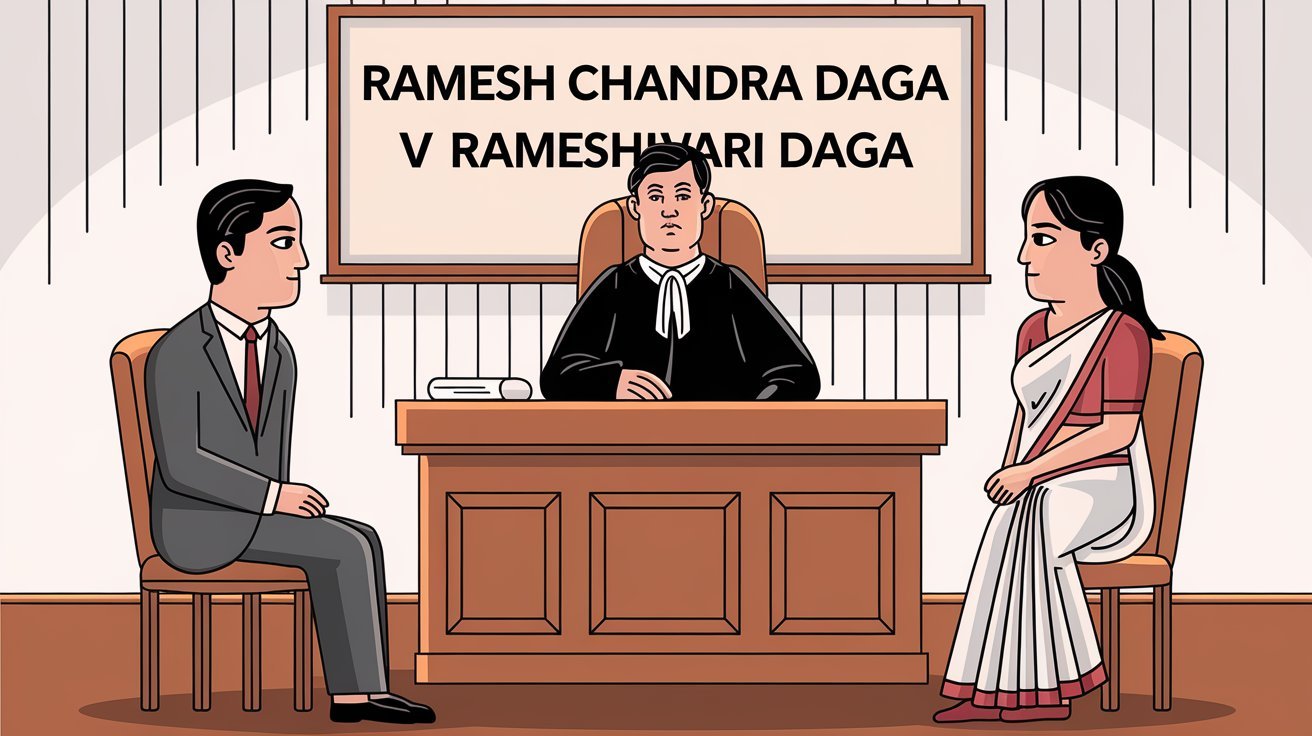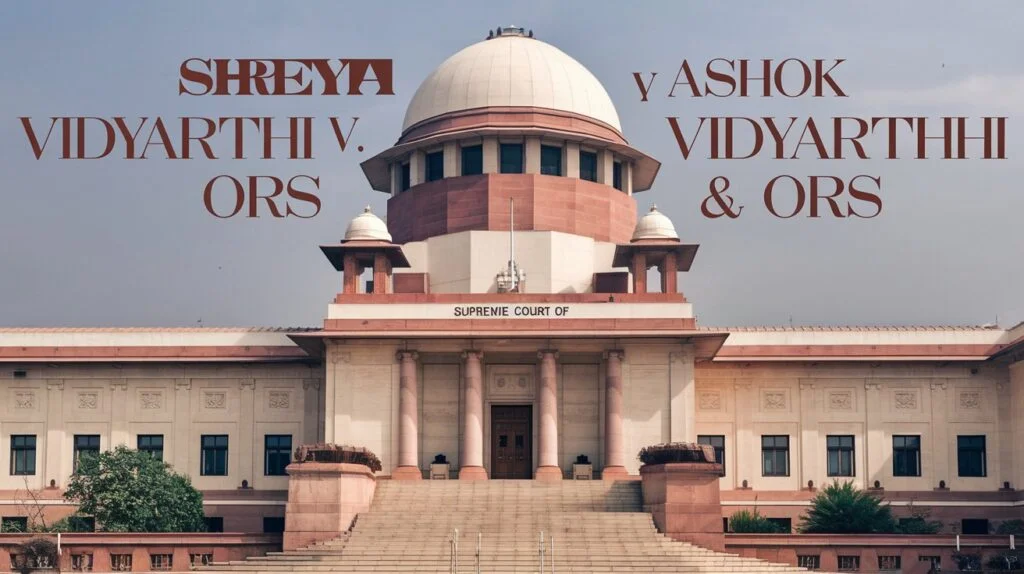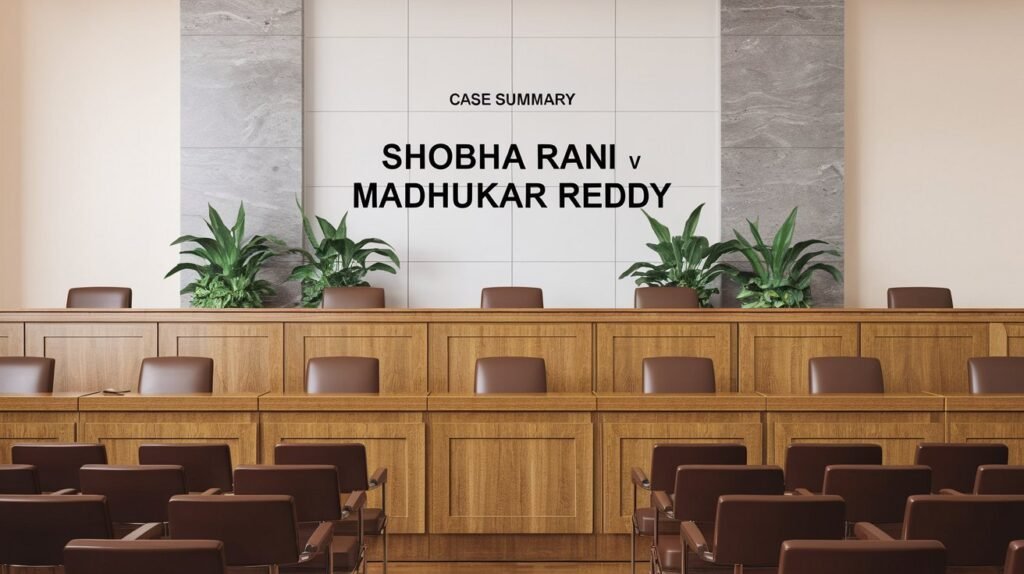Ramesh Chandra Daga v Rameshwari Daga AIR 2005 SC422 (Case Summary)

In this notable case, the Supreme Court dealt with the complex issue of maintenance under Section 25 of the Hindu Marriage Act, 1955, where the marriage was declared null and void. The Court upheld the wife’s right to maintenance, even after the declaration of the second marriage as a nullity, recognizing the importance of protecting economically vulnerable spouses.
Table of Contents
ToggleFacts of Ramesh Chandra Daga v. Rameshwari Daga
- The petitioner, Ramesh Chand Daga(Husband), married the respondent, Rameshwari Daga, on July 11, 1981.
- The husband(Petitioner) had been previously married, and his first wife passed away. The petitioner had also been married earlier but had only obtained a customary divorce (Chhor Chithhi) without a formal court decree of divorce.
- A daughter was born from the second marriage in 1983.
- The Respondent (Wife) alleged cruelty and filed for judicial separation and maintenance.
- The husband(Petitioner) filed a counter-petition, challenging the validity of the second marriage on the grounds that the petitioner’s first marriage had not been legally dissolved by a court.
Issues framed
- Whether the second marriage between the petitioner and respondent was valid under the Hindu Marriage Act, 1955, given that the petitioner’s first marriage had not been legally dissolved?
- Whether the petitioner was entitled to maintenance under Section 25 of the Hindu Marriage Act, despite the second marriage being declared a nullity?
Subordinate Court Judgment
The Family Court granted judicial separation and awarded maintenance of Rs. 1,000/- per month to the petitioner and Rs. 2,000/- per month for her daughter. The respondent’s petition to declare the marriage null and void was dismissed.
The High Court reversed the Family Court’s decision, declaring the second marriage null and void under Section 11 read with Section 5(i) of the Hindu Marriage Act, as the petitioner’s first marriage had not been legally dissolved. Despite this, the High Court upheld the grant of maintenance under Section 25 to the respondent and her daughter.
Judgment of Ramesh Chandra Daga v. Rameshwari Daga
In the Supreme Court, the case hinged on Section 25 of the Hindu Marriage Act, 1955, which allows for the grant of maintenance to either spouse at the time of passing any decree under the Act, including a decree of nullity.
The Supreme Court affirmed that the phrase “at the time of passing any decree” in Section 25 includes decrees of nullity. The Court relied on its earlier ruling in Chand Dhawan v. Jawaharlal Dhawan, which clarified that permanent alimony can be granted even when a marriage is declared null and void.
The Supreme Court upheld the High Court’s decision, maintaining the decree of nullity but confirming the petitioner’s right to maintenance under Section 25 of the Hindu Marriage Act.





